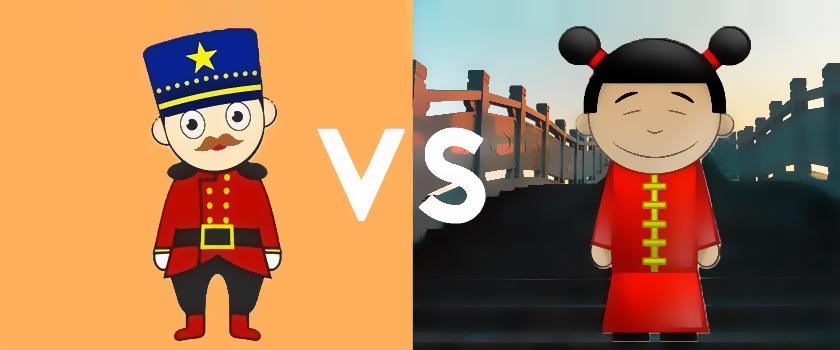Chinese people might ask about each other’s name, native place, age, profession and income when they first meet. Most Westerners prefer not to talk about their ages and income.
Chinese people usually ask about the other’s surname, not the other’s given name. The most common question is “nin gui xing?”(What’s your honorable surname ?). People may ask “Qing wen zui xing da ming ?” (May I know your honorable surname and given name?) if possible. Only an elder person would ask a younger the question, “ni jiao shen me ming zi ?” (what is your full name ?).
Because Chinese people respect the aged, the younger generation never addresses the older generation by their given names or full names- even colleagues of the same generation don’t do so. English speaker, however, often address each other by given names regardless of their generation to show cordiality. When asking the age, Chinese people often say “ni jian nian duo da le ?” (How old are you ?)or “Ni duo da nian ji (sui shu) le?” or “Nin jin nian gao shou?”to enquire and old person’s age.
Read Also: Comparison of English and Chinese Expressions in Social Contact (I)
Chinese people like to put lao (old) before the surname of his acquaintances or friends who are older to show closeness, such as Lao Wang, and Lao li. They sometimes put Lao after the surname of a scholar at an advanced age to show their respect, such as Zhang Lao and Liu Lao.
English speaker address their parents differently as they grow up. The young child would call his parents “daddy and mommy”; later this changes to “dad and mom”. When he is older he uses “father and mother” instead and, even calls his parents by their given names if permission is given.
The term of “papa and mama” is seldom used nowadays. Chinese people always address their parents as baba and mama. English speaker call their brothers, sisters, cousins, or even their relatives of an older generation by their given names or nick names, such as Johnny, Bob, Liz and so on.
In China, people seldom call an elder brother or elder sister by the given name directly. They may use the given name followed by ge, jie, di, me; or ge, jie, di, mei are prefixed by a seniority number, such as erg e (second elder brother), da jie (eldest sister), san di (third younger brother), si me (fourth younger sister), etc.
Take a look at how we helped our client by localizing their project for Chinese language. Click here to read the complete case study
Having received a gift, a Westerner usually opens it at once and expresses his or her appreciation and thanks to the person who presents the gift. A Chinese usually declines it first before accepting it, and opens it only after the giver has left.
Chinese people don’t often say “xie xie ” to their family, but they do say it to those who are not close to them. Chinese people show their gratitude to waiters waitresses, chefs, shop assistants and other service providers. English speakers say “thank you” hundreds of times a day to everyone—family members, as well as people they do not know well. That service providers saying “thank you ” to customers is to encourage them to come again.
Are you looking for Chinese Translation? We are here for your assistance.



